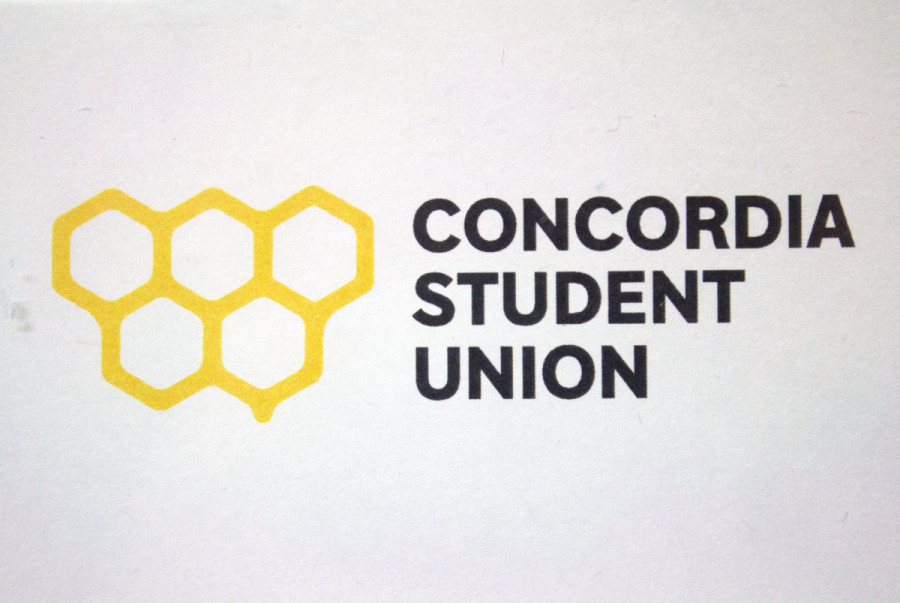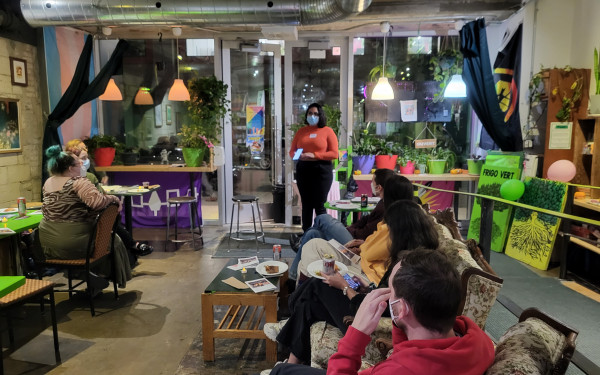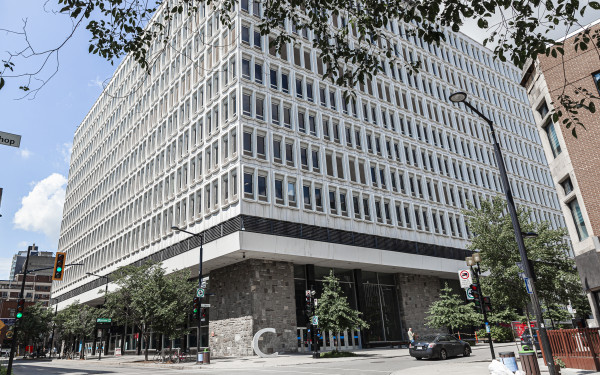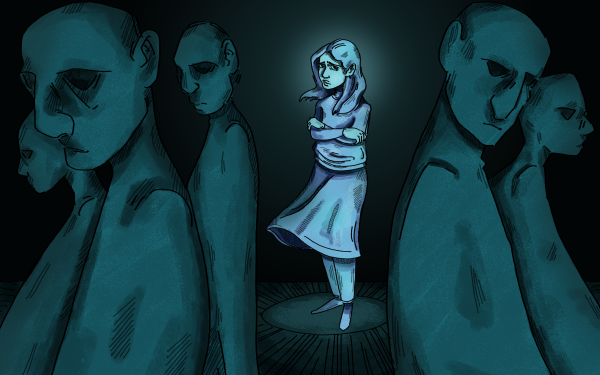CSU Upholds Sexual Violence Committee Boycott
Policy Bombshell Rocks Concordia Student Union’s First Council Meeting of 2023
Faced with a ticking time bomb from the university’s administration, the Concordia Student Union convened for its first regular council meeting of the year on Jan. 11.
The meeting’s primary purpose was to discuss the future of a boycott that the union has been engaged in since last fall. The debate lasted nearly three hours.
In October 2022, the CSU, alongside the Graduate Students’ Association and the Teaching and Research Assistants at Concordia union, withdrew from the university’s Standing Committee on Sexual Misconduct and Sexual Violence.
What unfolded became a student-led boycott, leaving the committee without any voices from the CSU, GSA or TRAC. Weeks later, the administration made a move.
During the meeting, General Coordinator Fawaz Halloum presented the council with information he had gotten from Lisa White, Concordia’s director of equity and chair of the SMSV committee. In an email sent in November 2022, White allegedly told Halloum the university would be appointing students to the committee itself without authorization from any unions.
“They literally handpicked them. They found someone—one of their stooges—and appointed them,” Halloum told the council. “These will be our representatives on a government-mandated committee. [Learning about this] was deeply troubling.” He said the university’s goal was to end the boycott and bring the students back into the committee.
Following the administration’s announcement, Halloum convened with the CSU’s appointments committee in December. Just days before winter break began, the committee was tasked with coming up with a solution.
Councillors Hannah Jackson, Sarah Al-Khaldi, Nassim Boutalbi and Mohamad Abdallah met with Halloum for nearly two hours on Dec. 22, 2022. Faced with the threat of disenfranchisement, councillors established a plan. In the meeting, Jackson spoke of her past experience dealing with McGill’s sexual assault policy while she was a student there. She, alongside Al-Khaldi, nominated themselves to represent the CSU on the committee.
While the councillors’ appointments to the SMSV committee would mean students have a voice, it would end a large part of the boycott. Asli Isaaq, the union’s academic and advocacy coordinator, caught wind of the appointments committee’s decision the day of the council meeting as she reviewed minutes in the consent agenda.
Isaaq objected to the union’s reintegration into the committee claiming it would only legitimize a fundamentally flawed system of handling sexual violence on campus. Whereas CSU committee minutes are usually unanimously agreed to in council meetings under the consent agenda, Isaaq contested the approval of the appointments committee’s decisions.
The motion to approve the decisions made in the appointments committee failed. “As representatives of the student body, it is our role not to shake in our boots when the administration comes to us, but to stand firm in what our beliefs are,” Isaaq said.
“Being a cohesive group is more powerful than having a seat at this table.” — Hannah Jackson
In support of the boycott, Isaaq invited three TRAC representatives, Becca Wilgosh, Mya Walmsley and Saskia Kowalchuk, to the council meeting.
For Wilgosh, vice-president of the union, maintaining the boycott is a matter of principle. “There is no circumstance under which it makes sense to participate because it doesn’t matter what we say or do—they don't listen to us. So, why are we slapping our names on it?”
“If we participate by legitimizing these positions, it undermines our boycott,” Wilgosh continued. “The point of the boycott is to challenge the legitimacy, not to make sure we have a seat at the table.”
According to Isaaq, starving out the SMSV committee is the best way to get the university to make concessions to the protesters. The union’s main gripes with Concordia’s sexual violence policy is that it is not stand-alone, survivor-centric nor transparent.
Julianna Smith, the CSU’s external affairs and mobilization coordinator, told the council that concessions have already begun. “The university will no longer require non-disclosure agreements to be signed, which is really important because it means students can actually report back to others and can report on what is going on in this committee.”
After much debate, the proponents of the boycott convinced each skeptic to side with them. Coordinators and councillors alike thanked Halloum and the appointments team for their efforts in bringing the issue forward.
Jackson, who initially supported reentering the committee, heeded the advice of Wilgosh, Isaaq and others. “Given the context that I now have about this committee and our overall strategy, I would like to formally rescind my place on this committee.”
A motion introduced by Smith to decline nominations to the SMSV committee and reinforce the boycott was passed unanimously.
“Being a cohesive group is more powerful than having a seat at this table,” Jackson said.







__600_375_s_c1.png)